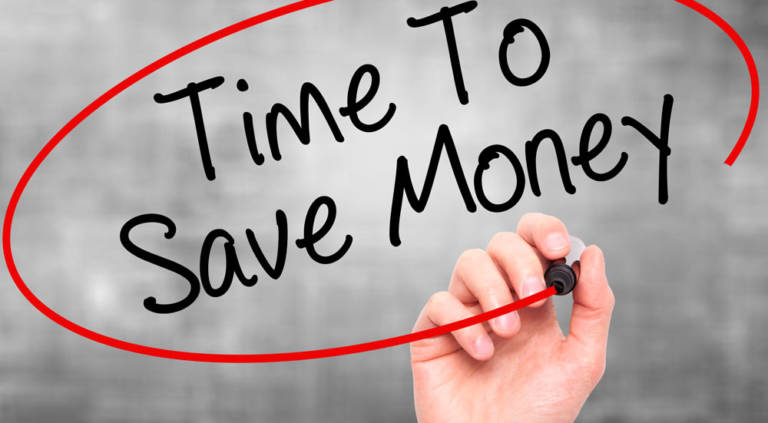
Do you feel discouraged whenever you sit down and seriously calculate the amount you spend per month on so-called necessities? If so, you're not alone. But the fact that there are a lot of other people like you doesn't mean you can't change your ways for the better. As you'll see by studying the tips below, it's possible to buy fewer things, but not feel deprived.
Like Organic Soul on Facebook
Explore Borrowing Or Rental Options
There's a good chance that many of the things you buy are items that you'll only use a few times or perhaps even less if you're buying them for special events. Think hard about how much you'll likely use an item before you go through with purchasing it.
If you discover you'll use it five times or less, and especially in a short span of time, it's probably smarter to consider renting or borrowing your item as opposed to buying it.
There is probably at least one rental business in your area, and it's worth at least contacting them to see if they regularly stock the item you need. If it's something seasonal, such as a piece of equipment used to prep your yard in the spring, you may need to call a few days in advance of when you actually need it and make sure they have one on-site currently.
If they don't, ask when the items which are currently rented to other people will be back in stock, and inquire about putting yourself on a waiting list.
There are some cases when being added to a waiting list is not possible, particularly when the business operates on a first-come-first-served basis. In that instance, make a note of when you're told the item is set to come back on the premises ,and then contact the rental business again as close as possible to that time and see if you can be the first person to rent it again.
Alternatively, ask around in your circle of friends and acquaintances to see if those people have the items you need and would be willing to loan them to you. It's even wise to think about using social media to appeal to people in your area since you'll get such a wide reach through that method.
Depending on which items you need to borrow, it may be necessary to assure the lender you'll return the things safely and in good condition. That's particularly true if they are valuable or hard-to-find items.
By depending on either or both of these options, you could save a lot of money by completely bypassing the need to buy items. Also, you're not missing out on anything major, because although you don't own the items, you still get to use them for an agreed upon amount of time.
Buy Higher Quality Items
Like many people, you may get into the habit of buying cheap versions of often-used items, such as jeans and tennis shoes. By buying pairs that are among the cheapest available, it probably seems as if you're getting a great deal. Indeed, you're benefiting from a short-term bargain.
However, because cheapest items tend to be of lower quality, there is also a good chance that you're buying more of the lower priced items over time because they wear out faster than more expensive but higher quality items would.
For at least a few months, do an experiment by purchasing a good quality item, and then the same type of product, but one that's lower quality. Ideally, buy each one on the same day, and then mark the date on the calendar to remember when you purchased them.
You'll probably end up finding out that the lower priced and lower quality items wear out faster than the ones that cost more, but are made from higher quality materials.
If you decide to permanently begin buying higher quality items in certain instances, you'll probably end up buying fewer things overall because you no longer have to compensate for the items that were becoming quickly unusable through normal wear.
Also, consider that some well-made items have warranties, so if you end up buying one of them and it breaks soon after you buy it, there is probably a process you can go through to get the item fixed or replaced for free.
That means instead of becoming frustrated and buying a replacement item because it's something essential, you can submit the proper paperwork to redeem your warranty.
Avoid Impulse Buys
When you're out shopping, you might typically come across things that seem like must-have items, so you impulsively toss them into your cart and try not to feel too guilty as you head up to the checkout.
Usually that's not too hard because you're able to convince yourself you'll surely use the item enough to justify the purchase price. However, once you get home, it probably turns out that you don't use the item nearly as much as you expected.
That's because people don't have time to adequately consider the worthiness of such purchases, and as their general name suggests, they buy them impulsively without considering the consequences.
Perhaps the most obvious consequence of such an action is less money in your bank account. But think about your impulse buys in a more in-depth way and it will become clear you have a house full of things you bought but didn't really need.
The next time you're tempted to give into the urge and go through with an impulsive purchase, do your best to hold off for at least a week. During that time, ponder how much you really need the item, and ask yourself whether you already own good substitutes you could use in place of the new item.
By regularly delaying otherwise impulsive purchases in that way, there's a good chance you'll still feel like you have plenty of possessions but won't go through the personal remorse that comes from knowing you bought yet another thing that you don't need.
Keep Track Of Your Consumption Habits
Many people buy more food, personal care items and household cleaning products than they actually need, often because those things are on sale at a seemingly unbeatable price.
 Although there's no harm in buying things when they are sold at their cheapest prices, you also need to be aware of the feasibility associated with that approach. For starters, check the dates of all products you buy to make sure you can use the items up before their shelf lives expire.
Although there's no harm in buying things when they are sold at their cheapest prices, you also need to be aware of the feasibility associated with that approach. For starters, check the dates of all products you buy to make sure you can use the items up before their shelf lives expire.
Furthermore, start calculating how long it normally takes you to go through single packages of certain items and buy accordingly, regardless of what's on sale.
For example, if it usually takes you three months to go through a tube of toothpaste that has a sell-by date that's a year from now, it's not wise to buy a ten-pack of the toothpaste, because you'll never use it in time.
Hopefully, these tips have proven how easy it is to buy fewer things without feeling like you're sacrificing a lot. Try them today and see how you can spend, and purchase, less.
















